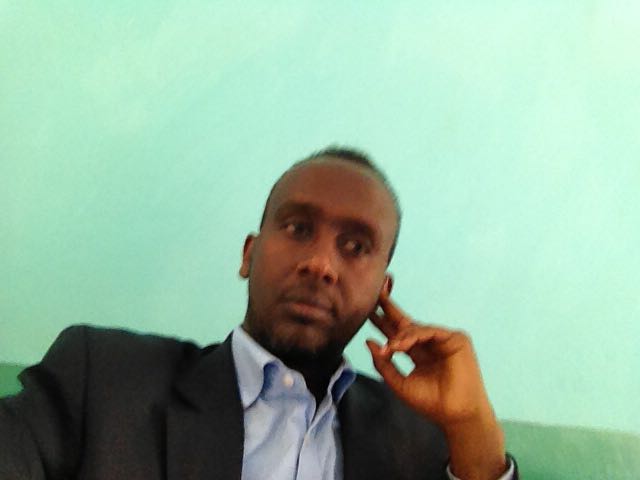Since independence, Somali leaders maintained independent foreign policy positions in a world divided by competing interests. For instance, during the Cold War Somalia had good relations with the People’s Republic of China while the West was actively engaged in isolating it. In 1977, when the late President Siyad Barre expelled Soviet representatives, China agreed to assume responsibility for most of the developmental projects started by the Soviet Union [1] – a good example that safeguarding national interest and the right to self-determination pays off.
Another example of Somalia’s neutral stance was in 1982 when late Egyptian President Sadat signed a peace treaty with Israel, Egypt was expelled from the Arab League. While majority of the Arab nations cut relations with Egypt, Somalia, a member of the Arab League, was one of the few nations who refused to blindly follow this policy and chose neutrality – another act of sovereignty and foreign policy independence!
In the current dispute between Qatar and other Arab states, the Federal Government of Somalia (FGS) was requested to take sides and to also join the boycott of Qatar. After an excessive amount of pressure was exerted on the Somali government , in the end, it firmly stated it will remain neutral. This was a historic test of Somalia’s sovereignty. As a country recovering from 25 years of conflict and destruction, such a decision, that can potentially alienate key allies is not only difficult but brave.
President Farmajo and Prime Minister Khayre prioritised the political independence of Somalia over any potential economic loss that Somalia may experience as a result of this decision. This clearly demonstrates a maturity of the relationship between the President and the Prime minister that has never existed in previous administrations. It also demonstrates a shared vision, unity and respect between these two leaders – rare commodities in Somali politics.
The majority of Somalis welcomed the President’s decision, including the Diaspora. They have been urging the government to not bow to pressure from foreign governments and to not compromise the nation’s sovereignty. If the government succumbs to the pressure to boycott Qatar and relinquish its neutral position, at what point will such demands end? Somalia at this point will lose its sovereignty to become an easy pawn that agrees to all foreign demands from foreign governments. If a so called ally tomorrow requests that Somalia cut its ties with Turkey, a country that has demonstrated its commitment and support of the Somali people in so many ways including establishing in Somalia the largest Turkish embassy in the world, will the government agree? This will become a point of no return where any future demands from foreign governments will be acquiesced to, including the sale of Somali territorial waters or fishing rights, or oil, or cutting diplomatic ties with important allies including Turkey and even Kenya. Such scenarios will not only be possible but may become a reality.
For those that are not supportive of the government’s decision, they are few in number and it is clear they have failed to distinguish between what is in the best interest of the nation and their personal agendas. The nation’s pride and a 57-year history of foreign policy independence, which made Somalia more respectable, secure and influential both regionally and globally, can not be easily squandered.
Are these individuals, some of which held high offices in previous government administrations, motivated by financial gains that will allow them to run for office in future elections? Or is it possible that they truly believe that it is in the best interest of Somalia to take sides in this dispute between brother Arab nations? If the former is the case, then it also begs the question of what other principals have these individuals sold, compromising national interest for personal gain while they held some of the highest offices in previous governments? If it is the latter, then what benefit does it bring to Somalia to take sides in a dispute between brothers rather than trying to mediate such a conflict, something that the current government has offered to provide? Ironically, some of these same politicians opposing the government are alleged to have been involved in questionable concessions made on Somalia’s natural resources while holding senior positions in former administrations. Shockingly, the entire government’s position was disparaged publicly by these politicians as the interest of one administration insider’s historic personal relationship with elements from Qatar. It is clear that whatever motives held by these opposing groups, they lack patriotism, integrity and wisdom to lead the Somali people.
Those that have spoken out against the government’s decision, including the few parliamentarians, should be supportive of their government which has created a moment of national pride as Somalis exert their sovereignty. A moment like this has never been experienced by the Somali nation and its people for the past 25 years. The rarity of this moment and the distance Somalis have had to travel to get here, should unite Somalis to support President Farmajo and Prime Minister Khayre’s courageous decision, irrespective of political affiliations and clan politics.
Hussein Soyan is a Finance expert who worked with international institutions and was a Senior Advisor for the Federal Government of Somalia. He writes often about banking and politics.
By: Hussein Soyan
Email: hsoyan@gmail.com
